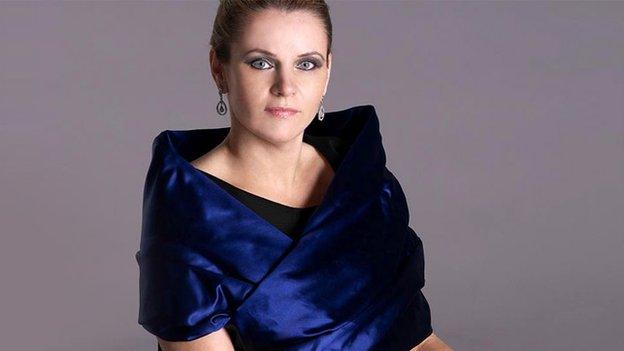The 'disruptive' businesses trying to crack the disability market
- Published
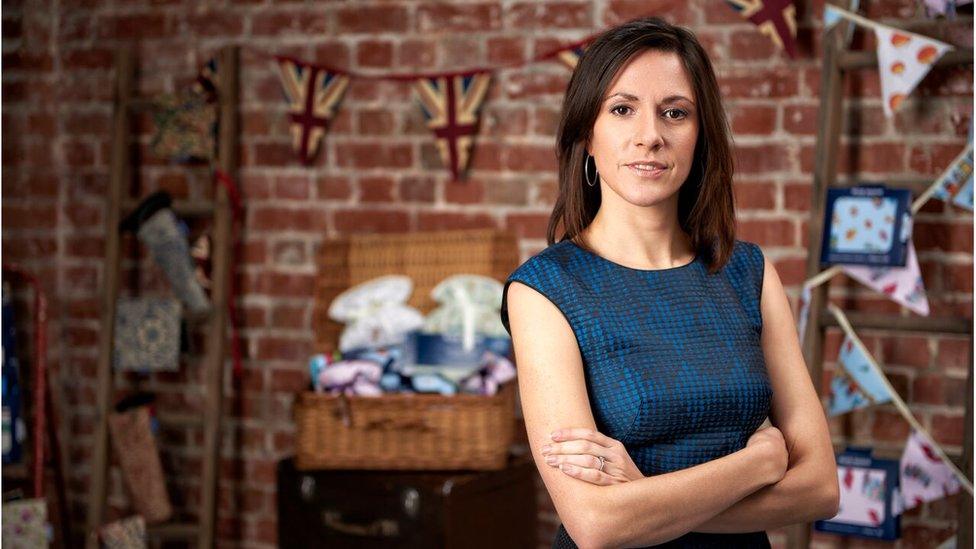
The founder of Blue Badge Company, Ellen Green
The disability market is worth billions of pounds - and companies are coming up with ever more "disruptive" ways to break into it.
Last summer was one of those rare occasions on Dragons' Den when someone pitches, nails the numbers and watches the Dragons try and outbid each other.
Then in a twist, the business owner rejected an offer of £70,000 for 35% of the company. The deal collapsed and she walked away with nothing.
Ellen Green from Blue Badge Company, which makes stylish accessories for disabled people, forged ahead anyway and now plans to expand internationally.
"It started because my friend, who was in her 30s and very stylish, had just received her first blue badge for the car.
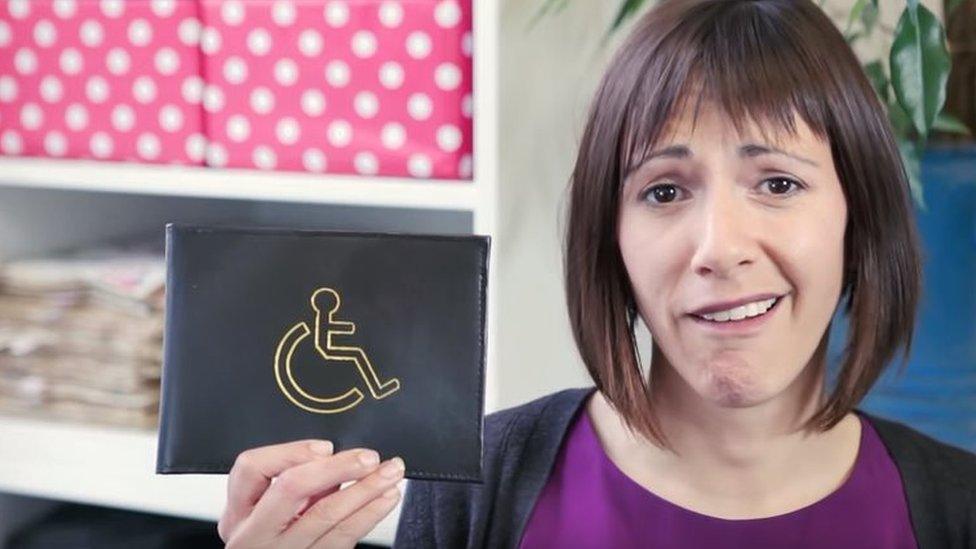
Ellen Green and her friend were dismayed at the only wallets for Blue Badges available when they first started out
"She was looking for a wallet to keep it in but all she could find was a blue one with a white wheelchair on it - it was just like many disability products, clinical and dull and difficult to use - so she made herself one with polka dots on."
The friends started selling them online, celebrating even if one was bought in a week, and slowly it evolved into a company which continues to challenge perceptions, including the way it operates.
Green says: "My first employee used to be a pattern cutter. My second employee was disabled."
And so it expanded to a team of 16, offering jobs and training to those with disabilities or those who were carers. Green herself is not disabled.
"The majority of our employees are doing assembly, which they can do from home, and it became really apparent to me that this was crucially important - because so many have barriers to accessing employment, and we're keen to break that cycle of unemployment."
The mixed workforce are often the originators of new products, designing items they want, as well as need, including stylish walking-stick bags.
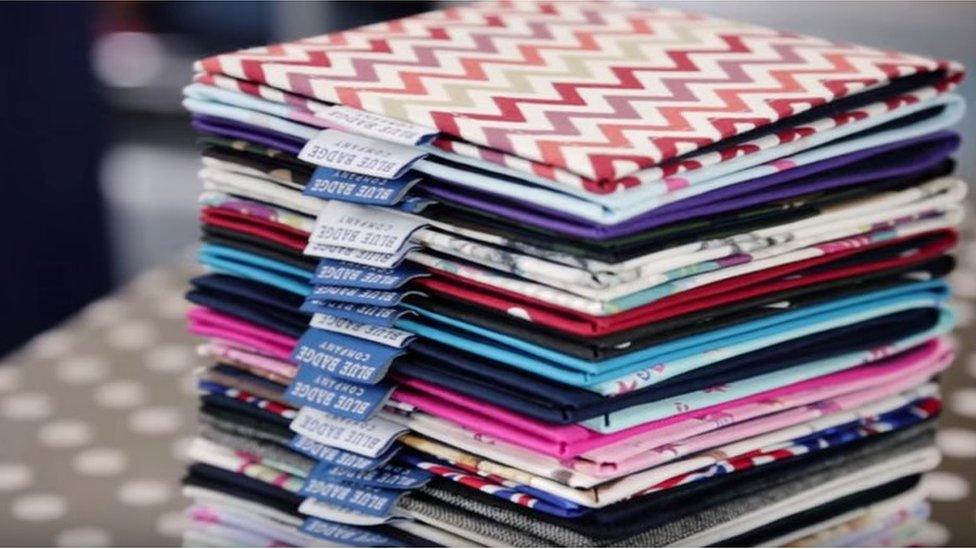
Stack of Blue Badge card wallets in a variety of colourful designs
The company's turnover has increased from £64,000 to £325,000 in three years, with its products aimed at disabled people being sold by retailers including Argos, Boots and Halfords.
"I think more retailers are coming to realise they have to offer products," she says. "A fifth of the population has a disability and those people aren't being particularly well served at the moment."
Her appearance on Dragon's Den helped highlight the strength of the so-called Purple Pound - the collective spending power of the nation's disabled people, their friends and family, currently valued at £212bn.
The figure refers to the money spent on everything they want or need, be it clothes, holidays or necessary apparatus, and incorporates 20% of all consumers - a rather large niche market.
"Our products are as sexy as disability gets," Green says. "We're cheeky and recognise this gap for practical solutions with bright designs which say more about someone's personality than their disability."
But she says selling the concept has not been easy.
"If you're starting as a disruptive company and challenging the status quo, which we are, it's certainly very hard work and I've learned to react as positively as I can.
"There is some resistance, but I hope we're going to start breaking down those stigmas and preconceptions."
She describes her company as "disruptive" because she says it actively challenges retail companies and what they consider the norm, as well as insisting their products get equal promotion.
Matt Wadsworth from London is the director of Good Food Talks, an app which enables restaurants to create audible menus.
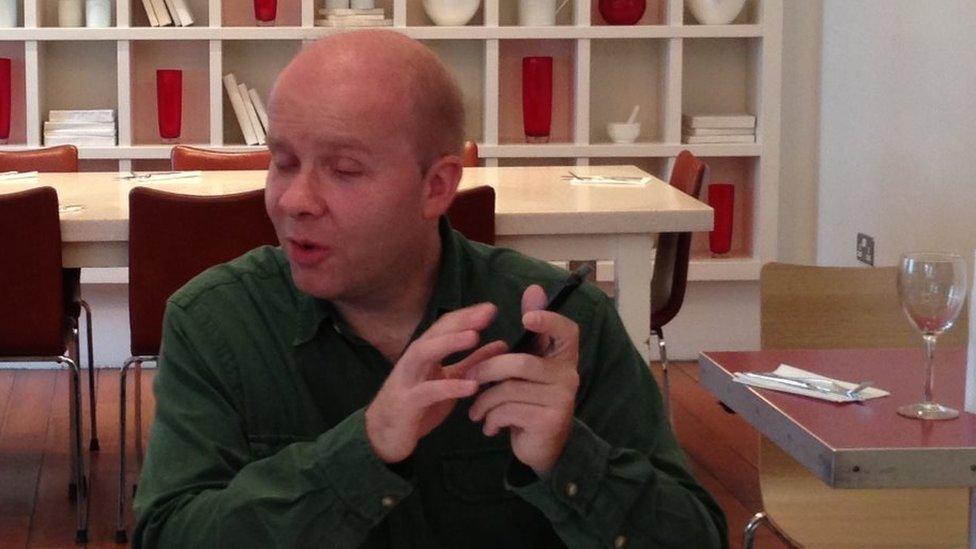
Matt tries out the Good Food Talks app in a restaurant
"I've been blind since birth so I've always been entrepreneurial, it's about solving problems," he said.
"I think in some ways as an entrepreneur you're in a good position if you've had to deal with a disability, as business is tough."
The app is free for users, with companies paying an annual subscription, and it is currently available in 1,000 venues including Carluccio's, Nando's and Pret A Manger, with the ambition to expand into America.
"We found that people want to use their own device and access their menu with their iPhone or iPad, and restaurant websites are really inaccessible... so there was an opportunity to bridge the gap."
Wadsworth says his app is mainly used by visually impaired people but can help people with dyslexia and those who need more light too.
"We've got access to over 100,000 users and Nando's are seeing about 1,000 hits a month and we can keep menus up to date in real time."
But there were challenges to overcome.
"You've always got to explain the need for it and at the beginning that was quite difficult, but you've got to be very confident and believe in your idea."
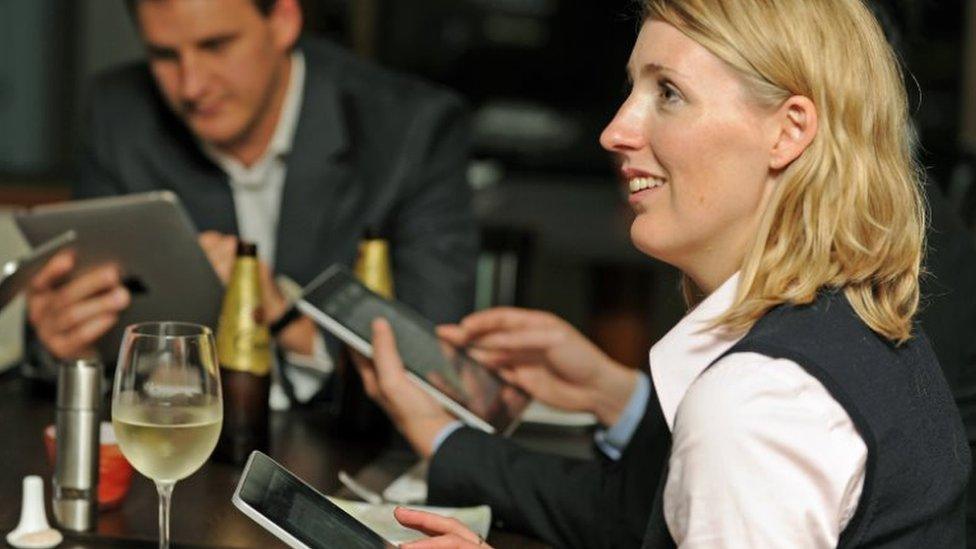
Matt said he tapped into more people taking their iPad and iPhones to restaurants
Wadsworth said he believes many businesses just don't think about accessibility, but he is positive that they can be educated.
"We just need to plug away, and now we live in a time where entrepreneurs are seeing the opportunity and using and developing technology to help with accessibility issues."
Lloyd's Pharmacy is one retailer which has reacted to a "growing demand" for accessibility products, opening six stores called Betterlife which only sell items to support independent living - from scooters to kettle tippers.
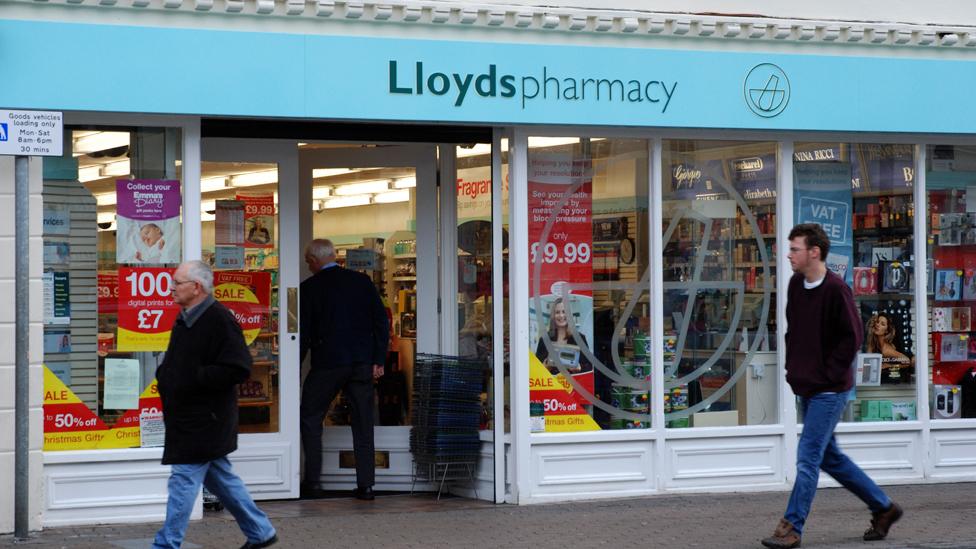
Lloyds Pharmacy says it's reacting to the demand for accessible products
They say they are accessible stores created with "usability and comfort in mind" and that they work with those "who have first-hand knowledge and experience" of what is needed.
For Blue Badge Company, Ellen Green has her sights set on expanding into Europe, which recognises the parking scheme, but the company's ongoing objectives remain closer to home.
"We're going to continue innovating to improve people's experience of everyday life and be the first brand to transcend the high end, and give traditionally dull and clinical products centre stage.
"That would be an amazing step towards creating social change."
Blue Badge Company will feature on Dragons' Den: Pitches To Riches on Sunday 28 February at 20:00 GMT on BBC Two - catch up on BBC iPlayer.
Follow BBC Ouch on Twitter, external and Facebook, external, and subscribe to the weekly podcast.
- Published11 June 2015
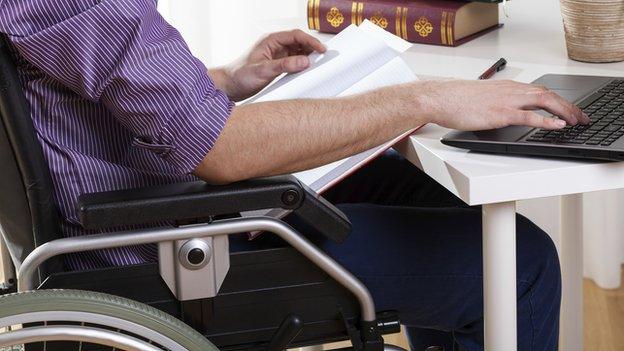
- Published21 January 2014
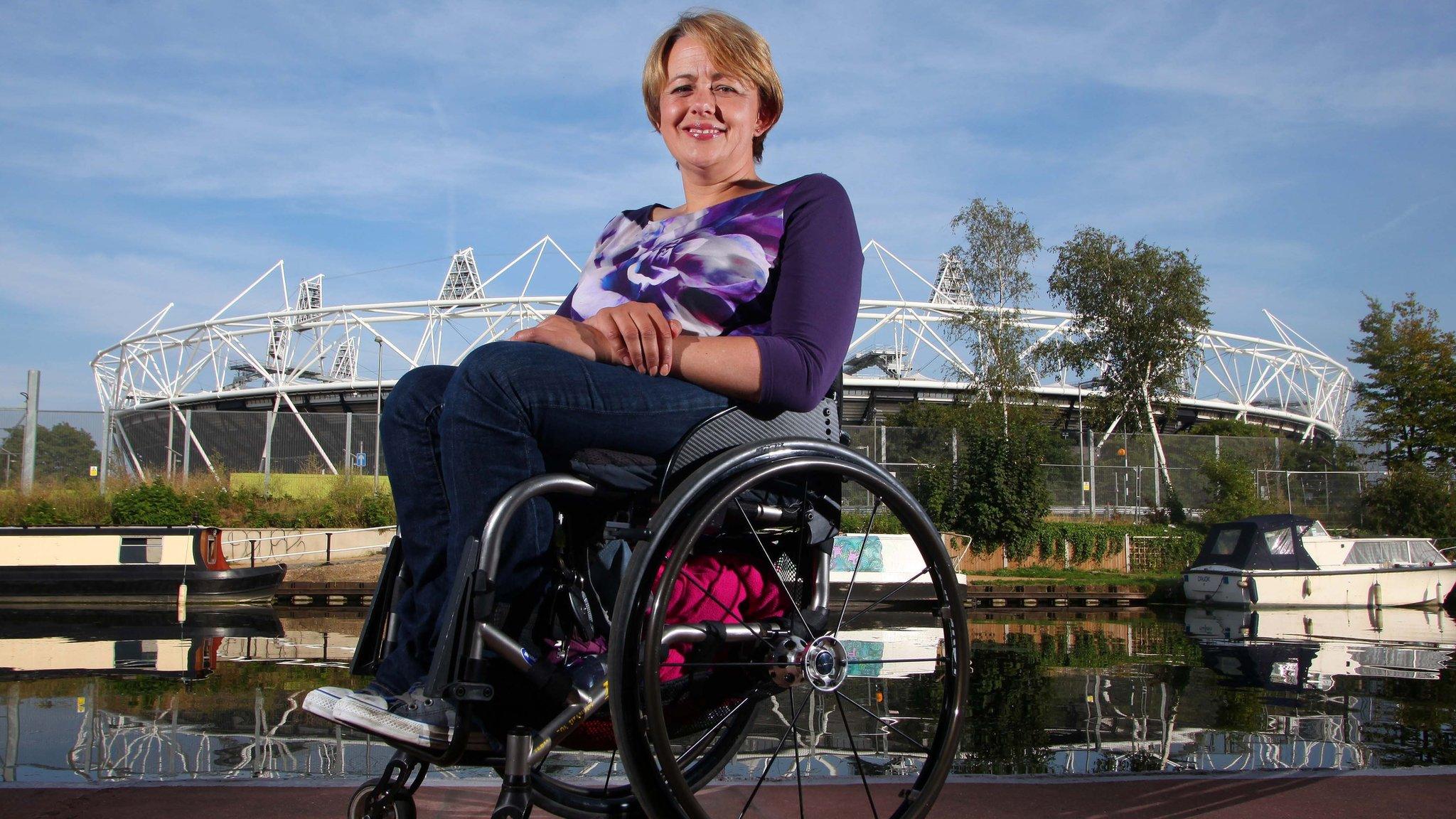
- Published22 May 2012
